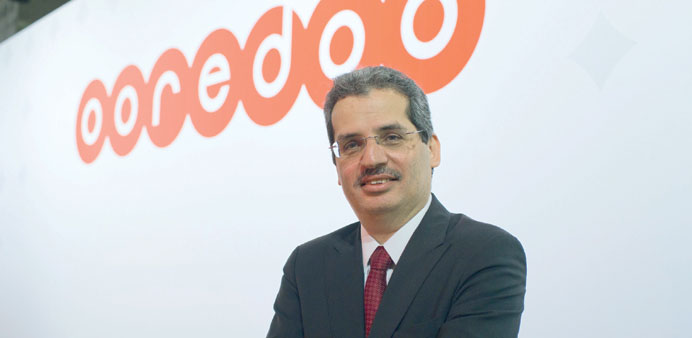Zawya Dow Jones, Reuters/Dead Sea, Jordan/Paris/London
|
|
Ooredoo, formerly Qatar Telecom or Qtel, has alternative plans in place to grow its business, including improving broadband access in markets such as Iraq and Indonesia, should its bid for Vivendi’s 53%-stake in Morocco’s Maroc Telecom fail, the telco’s top executive said yesterday.
“We are looking at other opportunities all the time and by the way we have other opportunities. It’s going to be a good asset if it happens, if it doesn’t happen there are other options that we have”, said Nasser Marafih, the Qtel group chief executive officer, at the World Economic Forum.
“We had submitted a compelling offer in our view that could be executed very fast”, he said.
Ooredoo, which has already secured funding from a consortium of banks for its bid, is vying for the Maroc Telecom stake with rival Gulf telco Etisalat. Both submitted bids last month and are now waiting to hear back from Vivendi.
Asked if Qtel would be willing to raise its offer, Marafih said: “We believe the offer we have on the table is good enough. We’re not discussing that at this stage.”
The company, which rebranded itself as Ooredoo in February, could buy the Moroccan government’s stake in Maroc Telecom should it be sold, but Marafih said the state is unlikely to do so.
Meanwhile, Ooredoo is lining up other opportunities should the Maroc Telecom stake acquisition not happen.
“We still have growth potential in our existing operation,” Marafih said, singling out the low broadband penetration in many of its markets.
“That’s an important part in the pipeline”, he said.
“We roughly invest close to $2bn in capex every year in all our operations and that’s going to mostly be focused now on broadband and data in all the key markets such as Iraq and Indonesia”, Marafih said. In Iraq, Qtel is in talks with the authorities about the issuing of 3G licences, which it hopes will happen later this year.
Qtel is also sticking to its strategy of increasing existing stakes, or bidding for new licences, which it did recently in Myanmar.
“Mena and Southeast Asia, that’s where the focus area is,” Marafih said.
Etisalat’s bid needs further work, however, and has more legal conditions than Ooredoo’s offer, according to two people familiar with the matter.
“If Etisalat cleans up its offer, then it wins,” said one of the sources, who is close to the process. “If not, it will go to Qatar, who also made an offer that Vivendi can accept.”
While the exact prices of the offers were not clear, sources earlier told Reuters that they had come in lower than the €5bn ($6.5bn) Vivendi had initially hoped for and closer to the market value of the stake.
Vivendi’s 53% shareholding in Maroc Telecom is now worth €4.34bn.
Maroc Telecom offers fixed-line, mobile and Internet services in the kingdom and is one of Africa’s top telecom firms, with units in Burkina Faso, Gabon, Mali and Mauritania.
The buyer will inherit a firm that has been a reliable cash machine for Vivendi but has seen slower growth in recent years, analysts say, although there is growth potential in sub-Saharan Africa, where sales and profits rose last year.
Vivendi has been in talks in recent weeks with Etisalat to remove some of the legal clauses in its bid, the sources said.
Ooredoo crafted its offer with minimal conditions to make it simple and less risky for Vivendi, the group’s strategy chief told Reuters earlier.
Both bidders are eager to sign a deal with Vivendi before Ramadan, which begins in early July.
For Vivendi, the sale of Maroc Telecom is crucial to its ambition to lessen exposure to capital-intensive telecoms and focus on its media activities in video games, pay TV and music.
“We think it will be a very close-fought race,” HSBC analysts wrote in a note. “We expect the victor, whoever it is, to use Maroc Telecom as a springboard to further acquisitions in the Africa region.”

